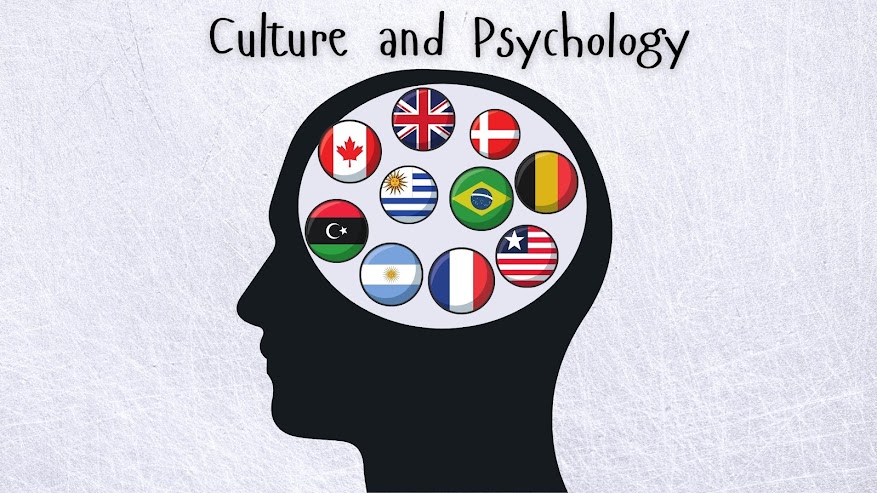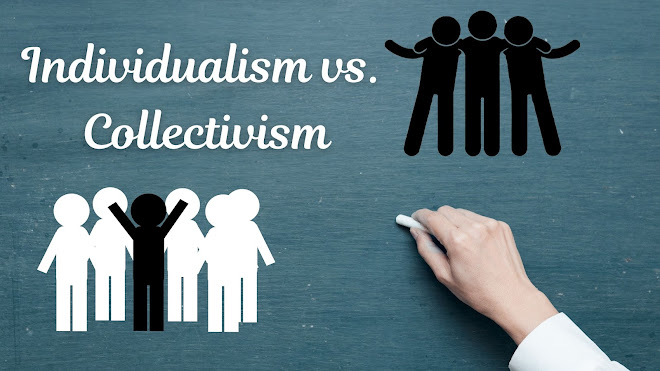02/21/2022 - W07 – Culture and Psychology

Our behavior is affected by the culture we come from, and this has been shown in my other posts on this blog. Something I would like to portray today is how we are psychologically affected by our culture. I still don't know if we are primarily affected psychologically by our culture or if we first behave like others around us, and then it influences us psychologically. Maybe it's both, depending on each case.
Watching the video Culture and Psychology from BYU- Idaho University, Professor Ivers cites how talent is related to culture. Some countries give more attention to certain talents than others, and maybe a person doesn't fit right in their culture because they don't have exactly that talent.
If we look at the Olympics, we see that some countries perform better in some sports than others, and in the soccer world cup, some countries are left out. In Brazil, soccer is a sport that stands out, children often want to be soccer players and play in the Brazilian national team to represent the country. When the Olympics start, in Brazil we started talking: for sure China and the United States will have many medals, we will probably be in 20th place, but in soccer we have to do well because that's what we know how to do. What price do people who enjoy other sports pay for having this soccer culture stand out and other sports to be sidelined? This is just an example to understand a little better. We place psychological cultural stereotypes that influence our lives in all areas.

Image source: https://tntsports.com.br/futebolbrasileiro/Selecao-brasileira-Neymar-e-exaltado-nas-redes-sociais-mesmo-sem-marcar-20201009-0050.html
I've always liked international music, especially English music. Over time, I began to realize that the songs that are part of my culture were left aside until my playlist was all international. Depending on who I tell that lately I only listen to international music, the person will say that I don't value my country, I don't see the good things in it. So I avoid saying. Generally, if we start praising other countries a lot, I'll hear the same thing. Culturally in Brazil, it is hard to talk about good things from other countries because either you are totally Brazilian, given the value of things that are here, or you are denying where you came from. It is hard for me as I am attracted to cultures, languages and different things from my country. It seems that I will always be letting foreigners into my country to steal all the good things we have in the Amazon because I say something good about other countries.
Brazil is a mixture, a mixture of Africa, of Europeans, and I believe that if we are more open to continuing to receive knowledge from other places and also to share what is good here, we will be able to break cultural barriers.

Capoeira emerged in Brazil as a form of resistance for slaves brought from Africa in colonial times.
Source: https://www.infoescola.com/artes-marciais/capoeira/

Vaneira is a typical dance from the southern region of Brazil brought by German immigrants.Source: https://www.dancastipicas.com/brasileiras/dancas-regiao-sul/
Bringing all this psychological culture into a TESOL classroom, psychological factors can affect student performance. Among seventy-six countries evaluated in the area of education, Brazil was in the sixtieth place and the Asian countries were in the first places. Students in a class with students from different countries could perform better or worse than others because of the psychological cultural influence that in their countries people are good or bad at it. As a teacher, I cannot nurture this influence, nor can I assess whether my students speak English well or poorly based on these psychological cultural stereotypes.
Studying culture and psychology, I realize that teaching a language, in addition to having to work on speaking, listening, writing, and reading, has to work psychologically. Cultural blocks can affect engagement and I had never thought about that. This new vision can help me first to break my psychological cultural blocks to be able to see the cultural influences on my students and help them to overcome themselves in learning a new language.
Lilian Perez.
Bringing all this psychological culture into a TESOL classroom, psychological factors can affect student performance. Among seventy-six countries evaluated in the area of education, Brazil was in the sixtieth place and the Asian countries were in the first places. Students in a class with students from different countries could perform better or worse than others because of the psychological cultural influence that in their countries people are good or bad at it. As a teacher, I cannot nurture this influence, nor can I assess whether my students speak English well or poorly based on these psychological cultural stereotypes.
Studying culture and psychology, I realize that teaching a language, in addition to having to work on speaking, listening, writing, and reading, has to work psychologically. Cultural blocks can affect engagement and I had never thought about that. This new vision can help me first to break my psychological cultural blocks to be able to see the cultural influences on my students and help them to overcome themselves in learning a new language.
Lilian Perez.

Comments
Post a Comment